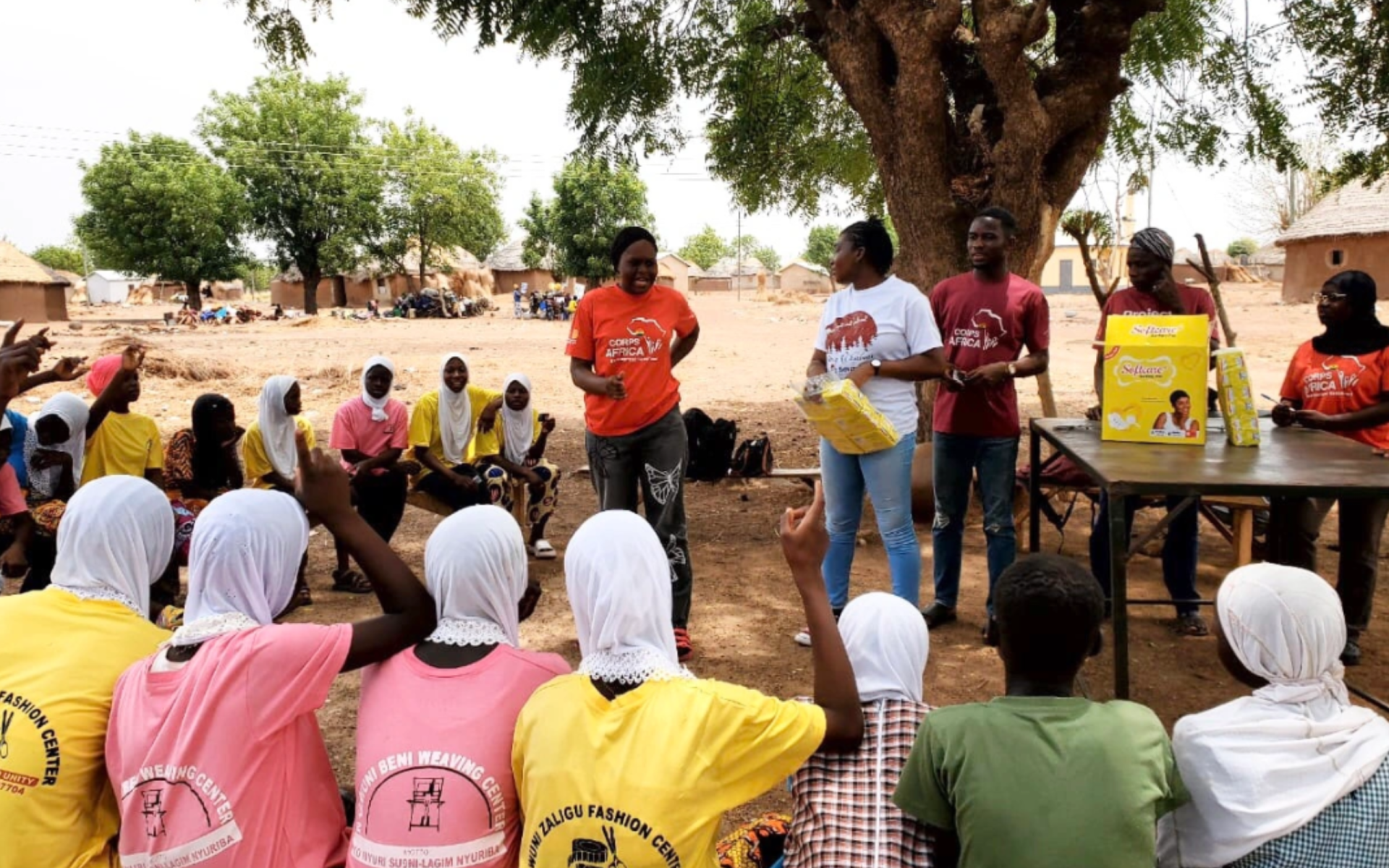In the Kukuo community——nestled away from the bustling city life, a silent struggle has plagued young girls. They lacked access to crucial Sexual and Reproductive Health and Rights (SRHR) information and services, particularly concerning menstrual health which is an integral part of their growth process. In the shadows of this neglect, discomfort, and ignorance became their unwelcome companions.
As a sworn-in CorpsAfrica Volunteer and a passionate SRHR advocate, I couldn’t stand by idly. Being inspired by the desire to make a difference, I embarked on a mission to bring about change in that regard. With full determination and empathy, I set out to organize a sensitization campaign aimed at empowering these young girls with knowledge, services, and resources to manage their menstrual health confidently.
I began by reaching out to community leaders and stakeholders, seeking their support for the cause. With their endorsement, I launched a series of educational sessions tailored to address the specific needs of girls. The campaign focused not only on disseminating information about menstrual hygiene but also on breaking down taboos surrounding menstruation.
On the main day of the sensitization event, the air buzzed with anticipation and excitement. Young girls between the ages of 13-19 from the community, gathered eagerly to participate. We started the session by fostering an open dialogue about menstruation, demystifying myths, and highlighting the importance of proper hygiene practices.
With the support of a healthcare professional from Savana Signatures, a non-profit organization focused on healthcare, and other Volunteer colleagues, we held interactive discussions where the girls learned about the menstrual cycle, menstrual hygiene management, and the significance of using sanitary pads. A box of sanitary pads was also donated to the young girls. However, we didn’t stop there. Empowerment was not just about imparting knowledge but also about providing homegrown practical solutions.
In a hands-on session, we taught the girls how to make reusable sanitary pads using locally available materials. With guidance from skilled artisans and Volunteers, they crafted pads that they could use and reuse, promoting sustainability and self-sufficiency. A sense of accomplishment and independence radiated from their faces as they held up their creations, realizing the power they held in their own hands to take charge of their health.
But my efforts didn’t end with the conclusion of the event. I established a menstrual health club within the community, providing a safe space for ongoing discussions, support, and access to resources. Through regular meetings and follow-up sessions, we will continue to nurture a culture of openness, ensuring that the seeds of change we planted will flourish and bear fruit for generations to come.
In a few days, the once-shunned topic of menstruation now occupied a central place in conversations, free from stigma and shame. Girls confidently shared their knowledge with peers and family members, becoming ambassadors of change within their households.
I can thereby confidently state that, when young girls are equipped with pertinent SRHR information and services, they make well-informed decisions that improve their overall health and well-being.
Reflecting on this journey, I am humbled by the impact we have made together. What began as a humble initiative evolved into a movement, igniting hope and fostering resilience in the hearts of these young girls. As we continue to strive for equality and dignity for all, I am reminded that change starts with a single act of kindness, and together, we can rewrite the narrative of empowerment and inclusion.

